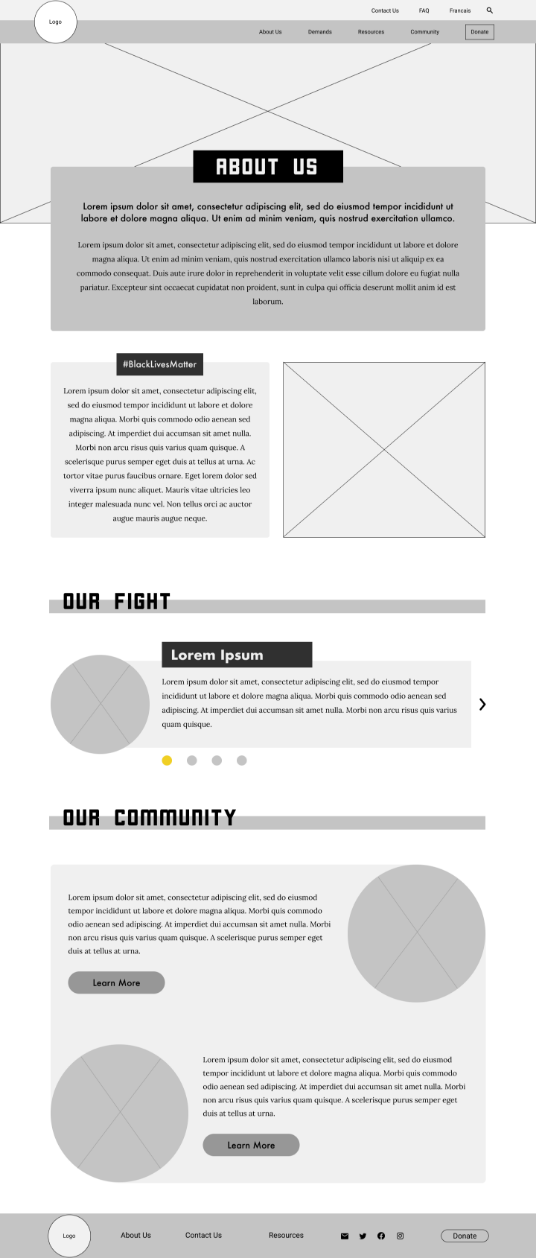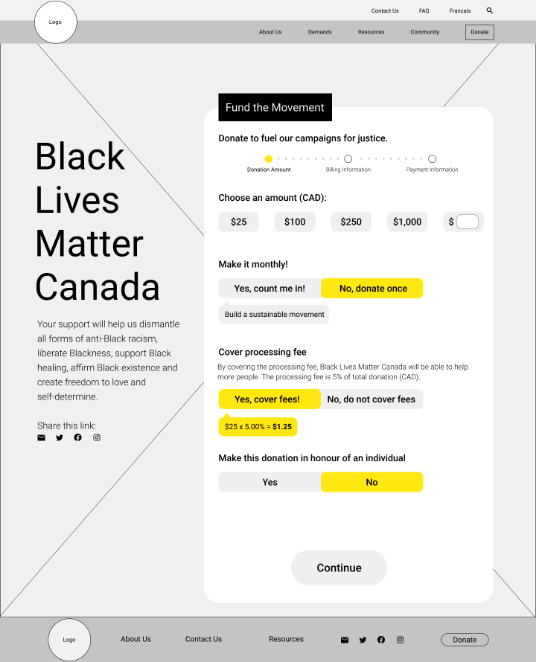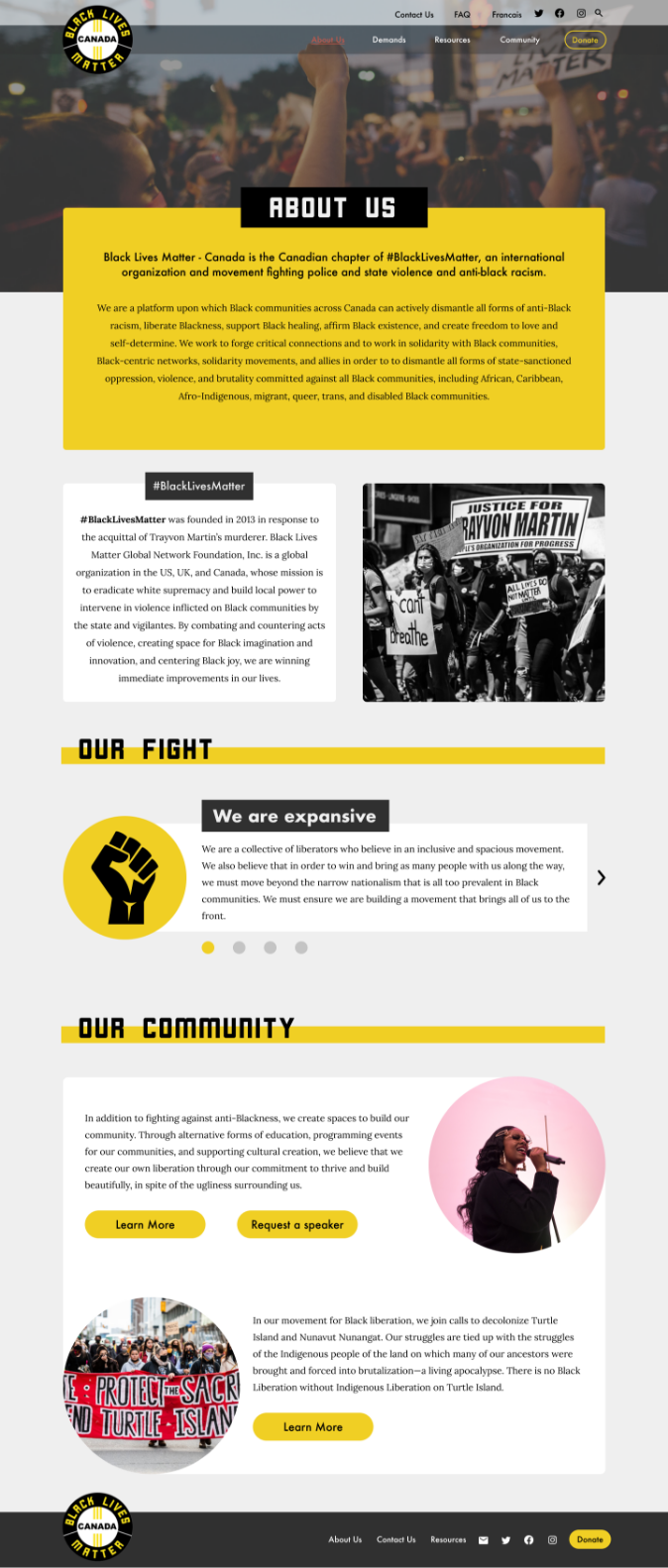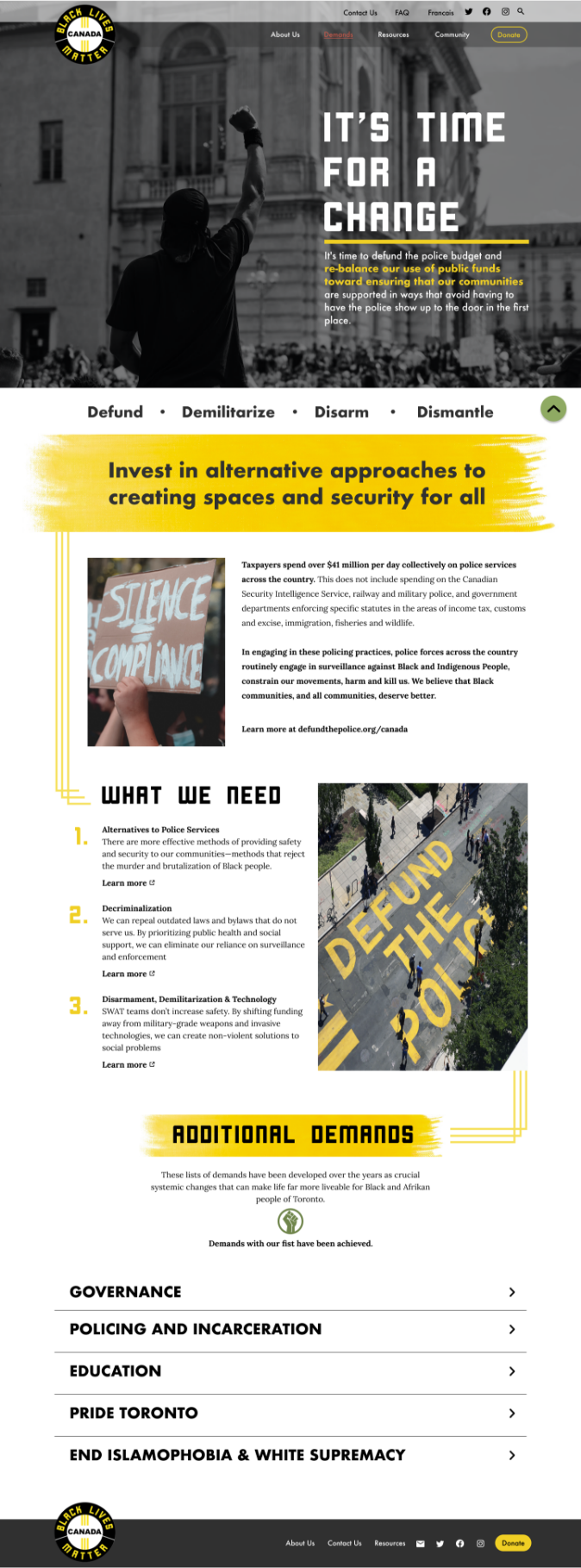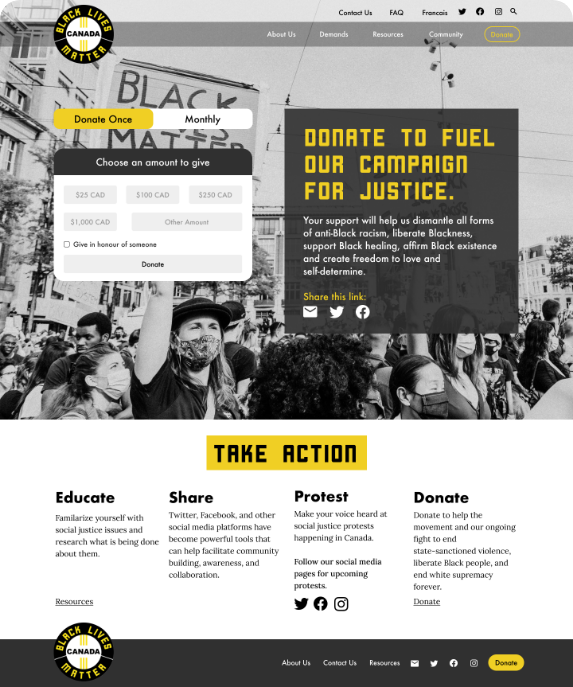Black Lives Matter - Canada
A 3-week long research into a website redesign concept.
Black Lives Matter (BLM) is a global organization, whose mission is to actively dismantle all forms of anti-Black racism and white supremacy. BLM aims to build local power to intervene in violence inflicted on Black communities.
Role: Concept, Course Project (User Experience), User Researcher, and UI Designer

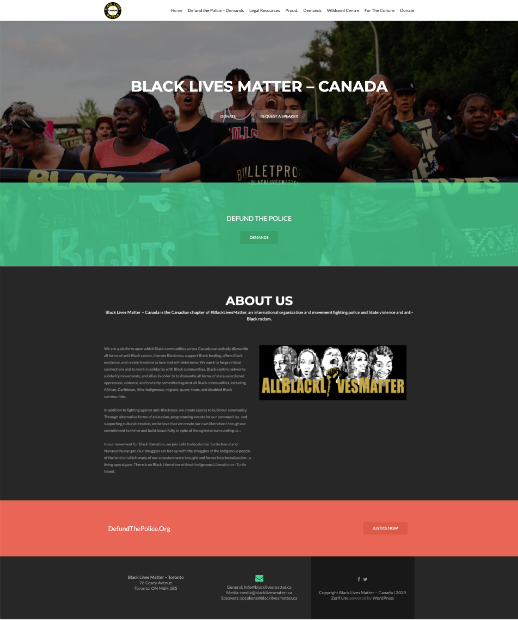
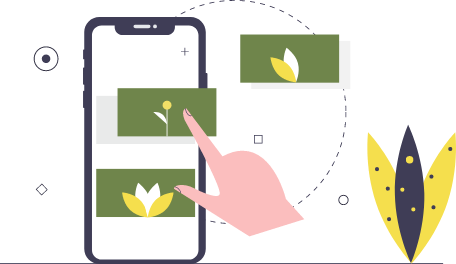
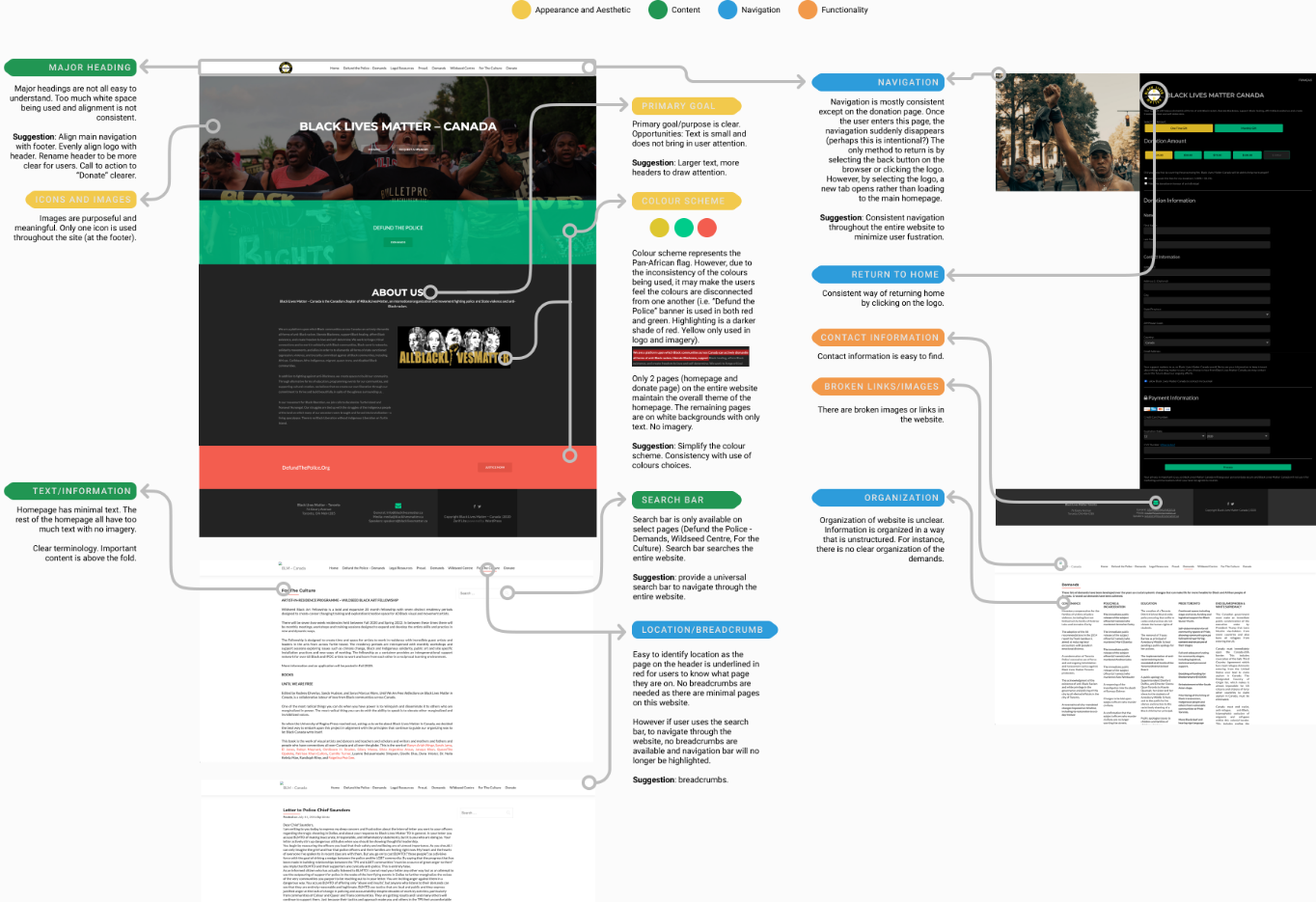

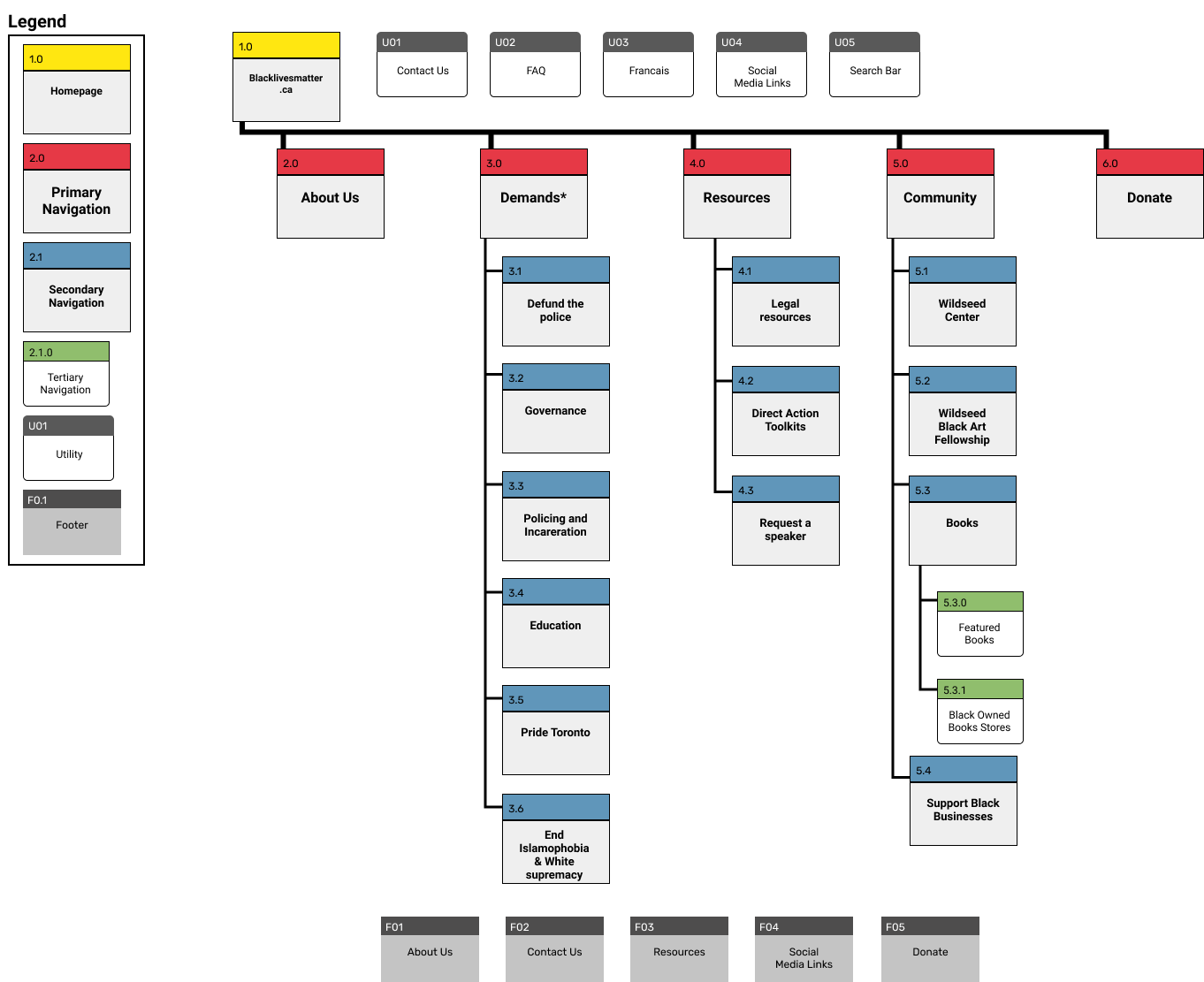
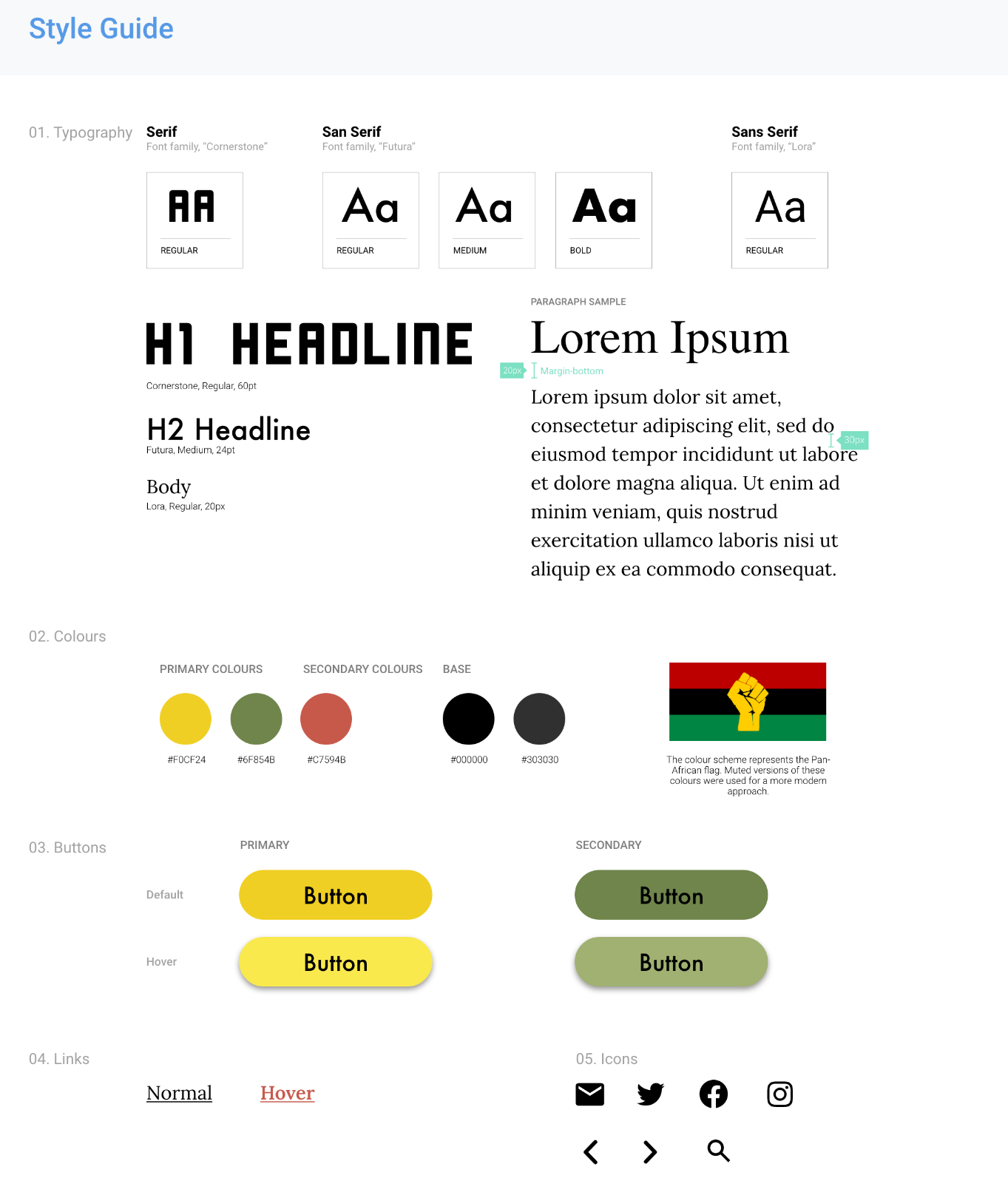
 Images below are scrollable
Images below are scrollable

